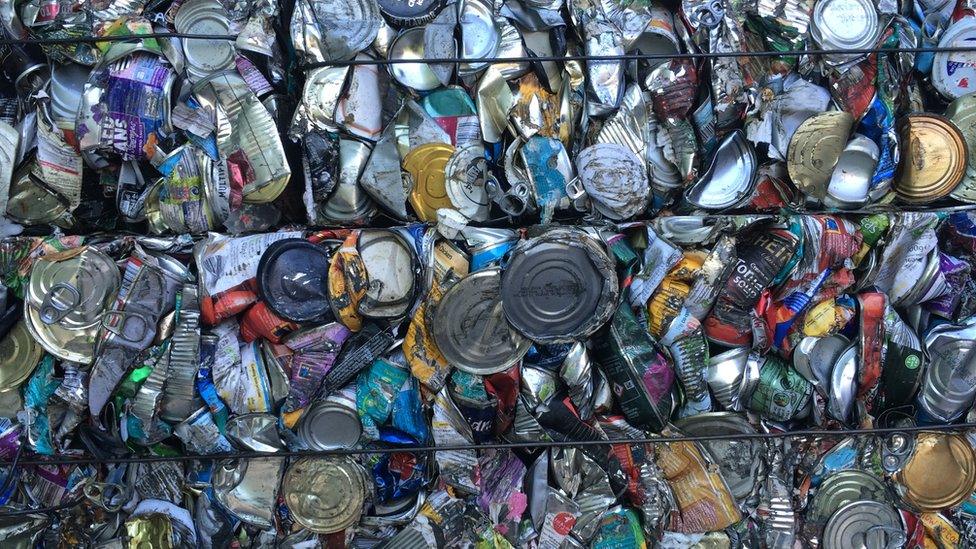Wales meets recycling target four years early
- Published
- comments
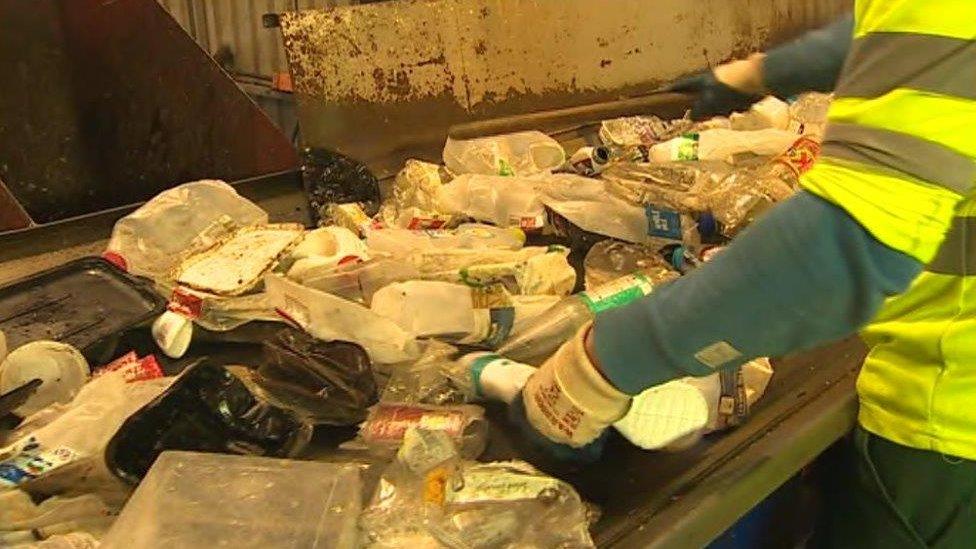
Ceredigion is the best performing Welsh county, recycling 70% of its waste
A target for 64% of waste to be recycled in Wales by 2019-20 has been met four years early.
Provisional data for the 12 months to March 2017 revealed an increase of 4% on the previous year's recycling rate of 60%.
Wales is well ahead of the rest of the UK, second in Europe and third in world recycling league tables.
Environment Secretary Lesley Griffiths said the statistics made for "extremely satisfying reading".
The Welsh Government has set statutory targets for recycling that local authorities must meet or risk facing fines.
The target for 2016-17 was 58%, rising to 64% by 2019-20 and then 70% by 2024-25.
By 2050, the Welsh Government is aiming for no waste at all ending up in landfill.

The figures showed all but one local authority - Blaenau Gwent - met the current 2016-17 target.
Top of the recycling league was Ceredigion, recycling 70% of its waste and hitting the 2025 target nine years early.
Although Blaenau Gwent missed the 58% target, its 57% recycling rate was an increase on the 49% seen a year earlier.
Newport and Torfaen have missed targets in recent years but managed to exceed the goal this year.
The residual household waste generated per person decreased by 4%, falling to 48kg per person between January and March 2017 compared with the same quarter in 2016.
Ms Griffiths said Wales should be "extremely proud of our recycling performance".
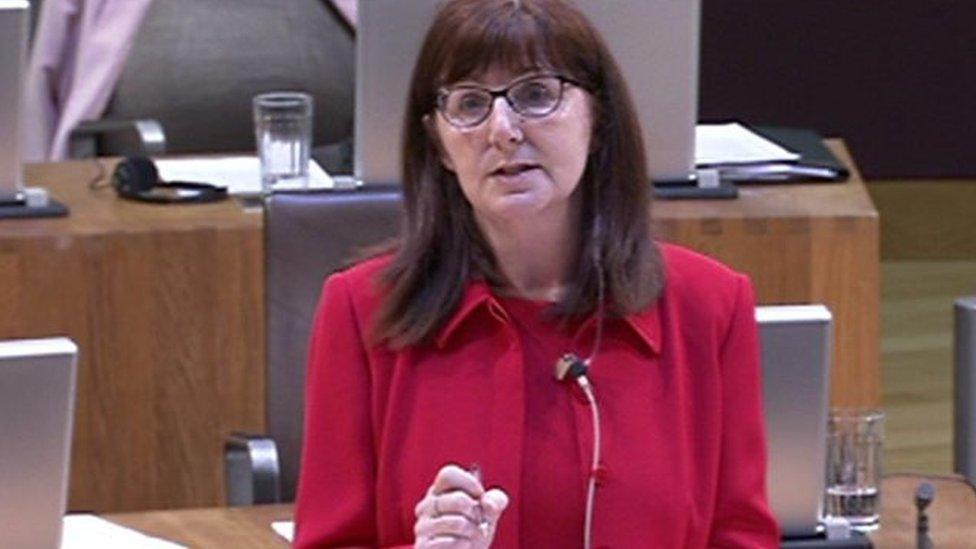
Environment Secretary Lesley Griffiths said the statistics made for "extremely satisfying reading"
"This is an area where we lead the way in the UK and indeed just two countries in the whole world recycle more than we do," she said.
"We are always looking at how we can continue to improve. Only last week I announced I intend to consult on plans to halve food waste by 2025."
The most recent recycling rate for England was 43.9% and 44.2% for Scotland, based on figures for 2015.
Recycling experts have put Wales' success down to the introduction of statutory targets and better separate waste collections.
- Published17 August 2017

- Published20 June 2017
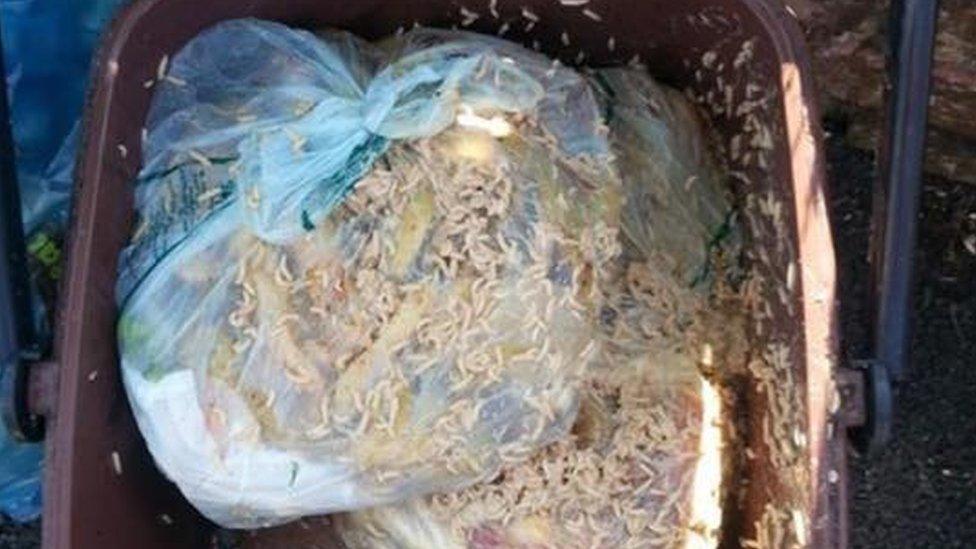
- Published15 April 2017
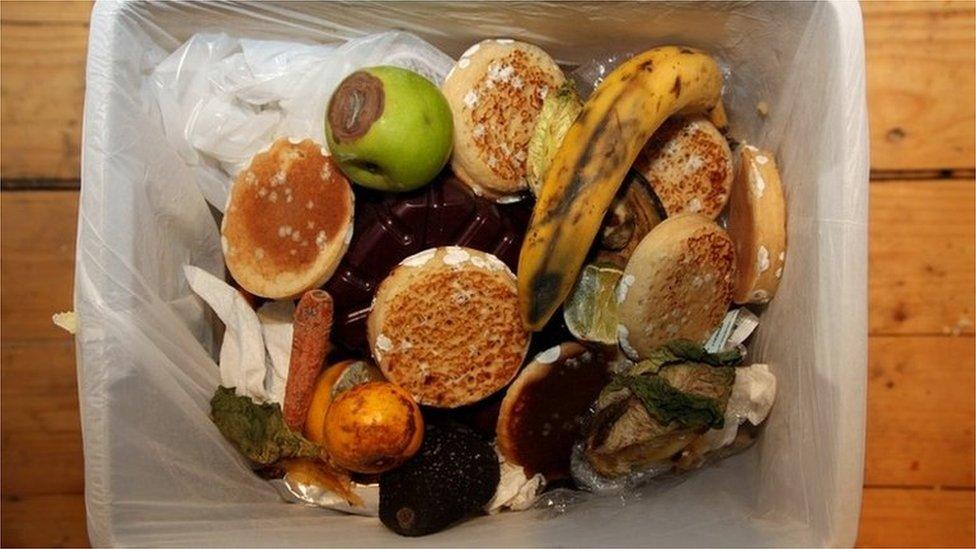
- Published28 October 2016
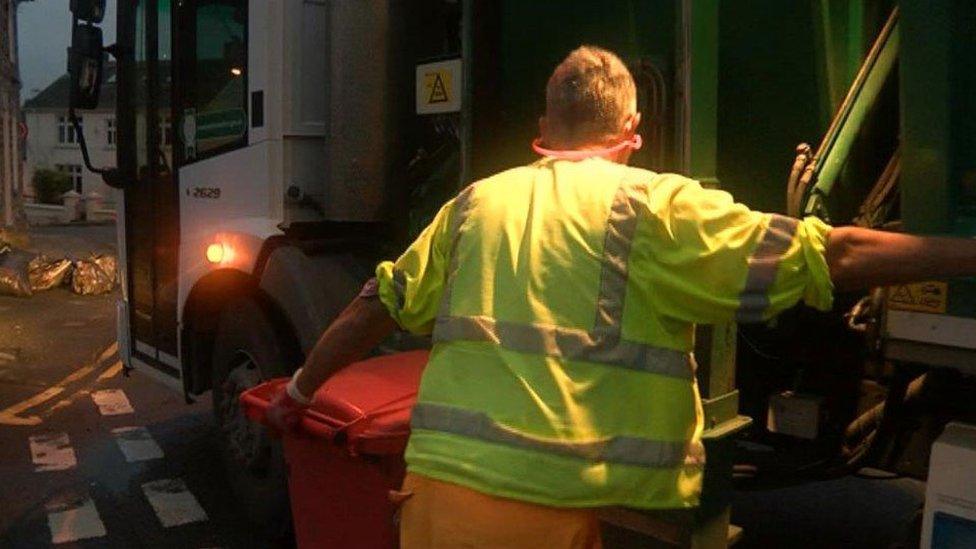
- Published24 August 2016
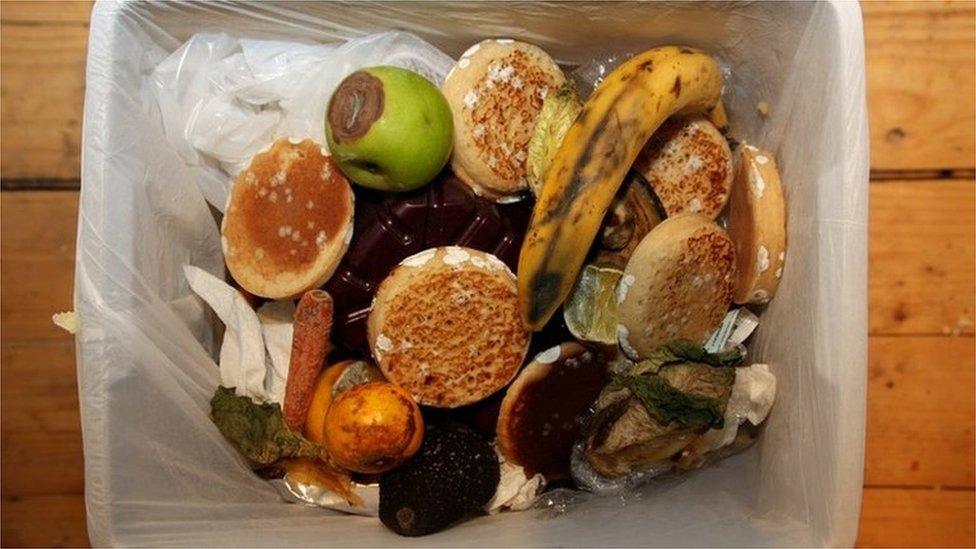
- Published21 January 2016
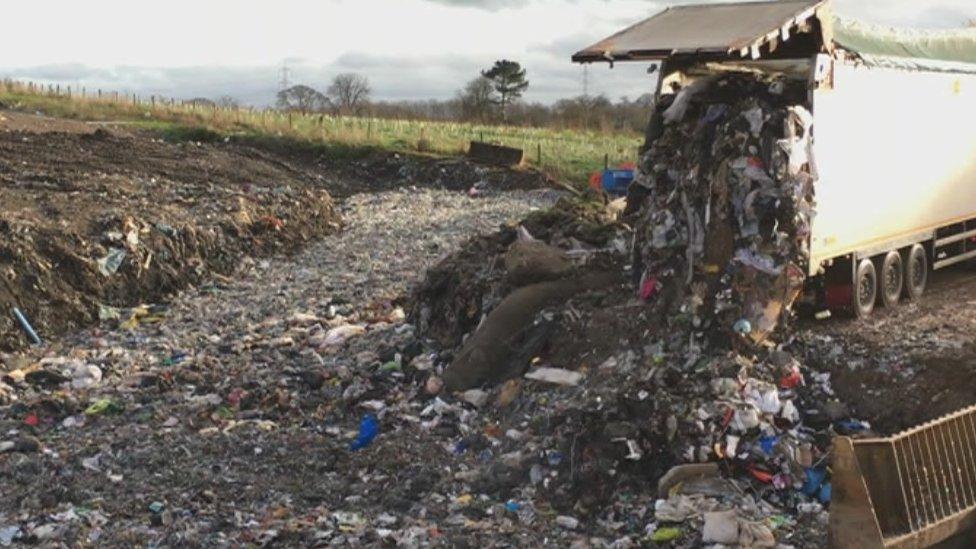
- Published18 March 2016
